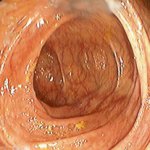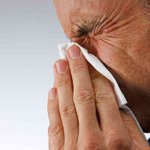How Long Does STD Testing Take
How long does STD testing take?
When you are counting days for your STD test reports, then the most important thing you might want to know is how long does STD testing take?
Hardly would you expect your sexual life to turn filthy, but an unsafe sexual encounter with your new partner can give you jitters. It might turn into a curse in case your sexual encounter affects you with any of the sexually transmitted diseases or know in short as the STDs. It is not always feasible or practical to examine your partner’s sexual health before getting intimate with him or her. Thus STD tests after the sexual intercourse are often essential to know how safe your copulation has been. To be certain about your sexual health after a sexual encounter, STD tests are often a must. But the faster, the better, thus you should know how long STD testing take as it can be a mind-racking experience.
There are various sexually transmitted diseases that can infect you because of risky sexual intercourse including HIV, syphilis, gonorrhea, herpes, trichomonas and HPV. The type of test and also the type of disease that you are taking a test for determines how long does STD testing take. Some of these do have pathological tests to detect whereas some do not have. The common symptoms are irritation in the genitals, soreness, pain while urinating and discharge from genitals. While few detect the pathogens for the diseases, few detect the antibodies produced as a response to the infection. Those relying on the latter take a longer time than the ones which detect the presence of the pathogen in the body. But most of the STD tests take 24 to 72 hours to show the results while some might take around three months. So how long does STD testing take varies from a day to three months.
STD tests are often not easy to conduct as few involve acquiring the sample from the infected area though few new technologies have helped doctors to use urine testing for syphilis or gonorrhea. But diseases like HPV are difficult to detect as it does not have any apparent symptom such as an external sore or a lesion. In this case, how long STD testing would take depends on the appearance of the symptoms and then the tests can be carried on.
On the other hand the blood tests rely on the antibodies produced inside the body in response to the infection. This type of test takes more time than usual as it checks the presence of antibodies only after the body is infected and a detectable quantity of antibody is produced. Also different antibodies react differently inside the body hence peak at different times after the body is infected. This phenomenon helps in determining for how long the patient has been affected, but delayed response also influence how long the STD testing would take to reasonably indicate the disease.
The ideal time to go for a bacterial test is within 2 to 3 weeks after the sexual encounter and should repeat the test after 3 to 6 months to be certain about the result. A single test result is always not reliable as the body takes time to react to the pathogen. Tests for few diseases like Chlamydia and gonorrhea take lesser time, whereas herpes and HIV tests take longer time to conclude the results.
STD tests are important to find out the occurrence of asymptomatic and pre symptomatic diseases, the causing agent of the disease, during pregnancy or after delivery of the child to find that the child is free from any diseases and to check that your long term sexual partner is free from ay disease, since STDs are highly contagious and can be transmitted during anal, vaginal and oral sex. And that you cannot control how long STD testing would take is a reason why you should be extra cautious.






